The Power of Whole Foods: Maximizing Nutrient Intake
Hey there, my young and curious friends of 2024! It’s your nutrition buddy from the past, Nita Sharda, here to take you on a magical journey into the world of whole foods – the superheroes of a healthy and nourishing diet.
Now, I know that when we hear the term “whole foods,” it might not sound as exciting as some of the flashy packaged snacks and treats that line the grocery store shelves. But trust me, once you discover the incredible power of whole foods to help you grow, learn, and feel your best, you’ll never look at an apple or a carrot the same way again!
So, are you ready to unlock the secrets of whole foods and become a nutrient superhero? Let’s dive in!
What are Whole Foods?
First things first, let’s talk about what we mean when we say “whole foods.” Whole foods are foods that are minimally processed and as close to their natural state as possible. They include:
- Fruits and vegetables
- Whole grains like brown rice, quinoa, and oats
- Legumes like beans, lentils, and peas
- Nuts and seeds
- Lean proteins like poultry, fish, and eggs
- Dairy products like milk and yogurt
Unlike processed foods, which are often stripped of their natural nutrients and filled with added sugars, unhealthy fats, and artificial ingredients, whole foods are packed with vitamins, minerals, fiber, and other important nutrients that our bodies need to thrive.
The Benefits of Whole Foods
So, why are whole foods so amazing for our health? Let’s take a closer look at some of the incredible benefits of eating a diet rich in whole foods:
Nutrient Density
One of the biggest advantages of whole foods is that they are incredibly nutrient-dense, meaning they pack a lot of nutrition into a relatively small package. For example, a single apple contains fiber, vitamin C, potassium, and antioxidants, all of which are important for keeping our bodies healthy and strong.
Fiber Power
Whole foods, especially fruits, vegetables, and whole grains, are also excellent sources of fiber. Fiber is a type of carbohydrate that our bodies can’t digest, but it plays a crucial role in keeping our digestive systems running smoothly, helping us feel full and satisfied, and even lowering our risk of certain diseases like diabetes and heart disease.
Disease Prevention
Speaking of disease prevention, eating a diet rich in whole foods has been linked to a lower risk of many chronic diseases, including:
- Heart disease
- Type 2 diabetes
- Certain types of cancer
- Obesity
- Digestive disorders
This is because whole foods are packed with nutrients like antioxidants, which help protect our cells from damage, and anti-inflammatory compounds, which can help reduce inflammation in the body.
Better Brain Function
Eating a diet rich in whole foods can also help support healthy brain function and development. For example, the omega-3 fatty acids found in fatty fish like salmon and the antioxidants found in berries have been linked to better memory, focus, and overall cognitive function.
More Energy
Finally, eating a diet rich in whole foods can help give us the energy we need to power through our busy days. Unlike processed foods, which can cause blood sugar spikes and crashes, whole foods provide a slow and steady release of energy that can help us feel more alert, focused, and energized throughout the day.
Maximizing Nutrient Intake with Whole Foods
Okay, so now that we know why whole foods are so amazing for our health, let’s talk about how we can maximize our nutrient intake by incorporating more whole foods into our diets.
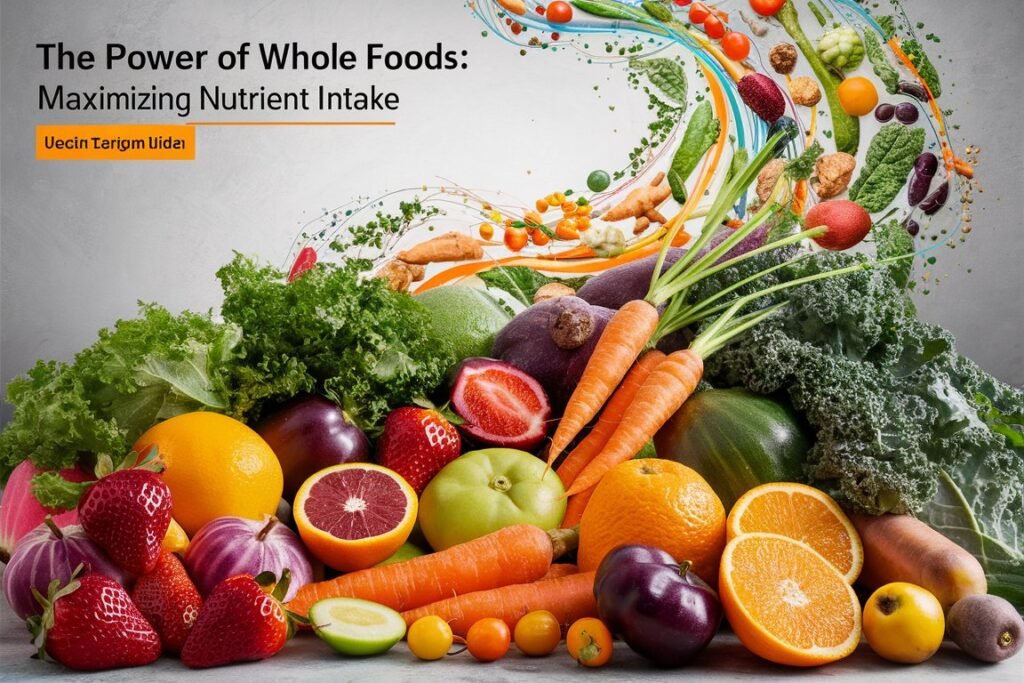
Eat the Rainbow
One of the easiest and most fun ways to maximize our nutrient intake is to eat a rainbow of colorful fruits and vegetables. Each color of the rainbow represents different types of nutrients, so by eating a variety of different colored produce, we can ensure that we’re getting a wide range of vitamins, minerals, and antioxidants.
For example:
- Red fruits and veggies like tomatoes and watermelon are packed with lycopene, a powerful antioxidant that can help protect against certain types of cancer.
- Orange and yellow fruits and veggies like carrots and mangoes are rich in beta-carotene, which our bodies convert into vitamin A, an important nutrient for healthy eyes and skin.
- Green leafy veggies like spinach and kale are loaded with vitamins K, C, and E, as well as folate and iron.
- Blue and purple fruits and veggies like blueberries and eggplant contain anthocyanins, which are powerful antioxidants that can help reduce inflammation in the body.
By eating a rainbow of colorful whole foods, we can help ensure that we’re getting a wide variety of important nutrients that our bodies need to thrive.
Choose Whole Grains
Another way to maximize our nutrient intake is to choose whole grains over refined grains whenever possible. Whole grains like brown rice, quinoa, and whole wheat bread are packed with fiber, B vitamins, and minerals like iron and magnesium, which are important for everything from digestion to energy production.
Refined grains, on the other hand, like white bread and pasta, have been stripped of many of their natural nutrients during processing, making them less nutritious than their whole grain counterparts.
Some tips for incorporating more whole grains into your diet:
- Swap white rice for brown rice or quinoa
- Choose whole wheat bread and pasta over white varieties
- Try ancient grains like amaranth, millet, and sorghum for a nutrient-dense twist on your favorite dishes
- Snack on popcorn (without the added butter and salt) for a whole grain treat
By choosing whole grains more often, we can help boost our nutrient intake and support our overall health and well-being.
Pump Up the Protein
Protein is another important nutrient that we can maximize by choosing whole food sources. Lean proteins like poultry, fish, eggs, and legumes are not only packed with essential amino acids that our bodies need to build and repair tissues, but they also contain other important nutrients like iron, zinc, and B vitamins.
Some tips for incorporating more whole food protein sources into your diet:
- Choose lean cuts of meat like chicken breast and turkey
- Incorporate fatty fish like salmon and sardines into your meals for a boost of omega-3s
- Try plant-based protein sources like beans, lentils, and tofu
- Snack on nuts and seeds for a protein-packed pick-me-up
By choosing whole food protein sources more often, we can help support our muscle growth and repair, as well as our overall health and well-being.
Snack Smart
Finally, one of the easiest ways to maximize our nutrient intake is to choose whole food snacks over processed and packaged options. While it can be tempting to reach for a bag of chips or a candy bar when we’re feeling hungry, these types of snacks are often high in added sugars, unhealthy fats, and empty calories, and low in important nutrients like fiber, vitamins, and minerals.
Instead, try snacking on whole food options like:
- Fresh fruits and veggies with hummus or nut butter
- Trail mix made with nuts, seeds, and dried fruit
- Greek yogurt with berries and granola
- Whole grain crackers with cheese or avocado
- Hard-boiled eggs with sliced veggies
By choosing whole food snacks more often, we can help keep our energy levels stable, our hunger at bay, and our nutrient intake high throughout the day.
The Power of Whole Foods: A Message of Empowerment
Wow, we’ve covered a lot of ground today, my young friends! We’ve learned about the incredible power of whole foods to help us grow, learn, and feel our best, and we’ve explored some simple and delicious ways to maximize our nutrient intake by incorporating more whole foods into our diets.
I know that sometimes, making healthy food choices can feel overwhelming or even boring, especially when we’re surrounded by so many tempting processed and packaged options. But I want you to remember that by choosing whole foods more often, you are making a powerful statement about your health, your values, and your future.
You are saying yes to nourishing your body and mind with the best possible fuel, and no to empty calories and artificial ingredients that can leave you feeling sluggish and unwell.
You are taking control of your health and well-being, and setting yourself up for a lifetime of vitality, energy, and resilience.
And most importantly, you are discovering the joy and deliciousness of real, whole foods, and learning to appreciate the incredible flavors, textures, and nutrients that nature has to offer.





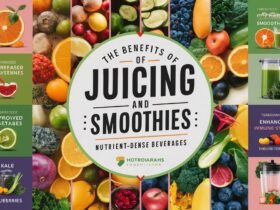



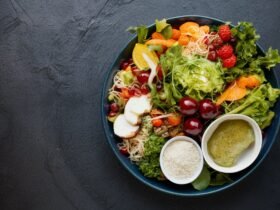
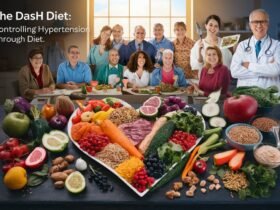
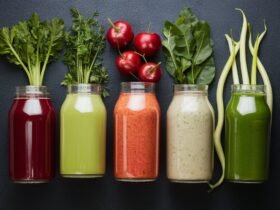
Leave a Reply